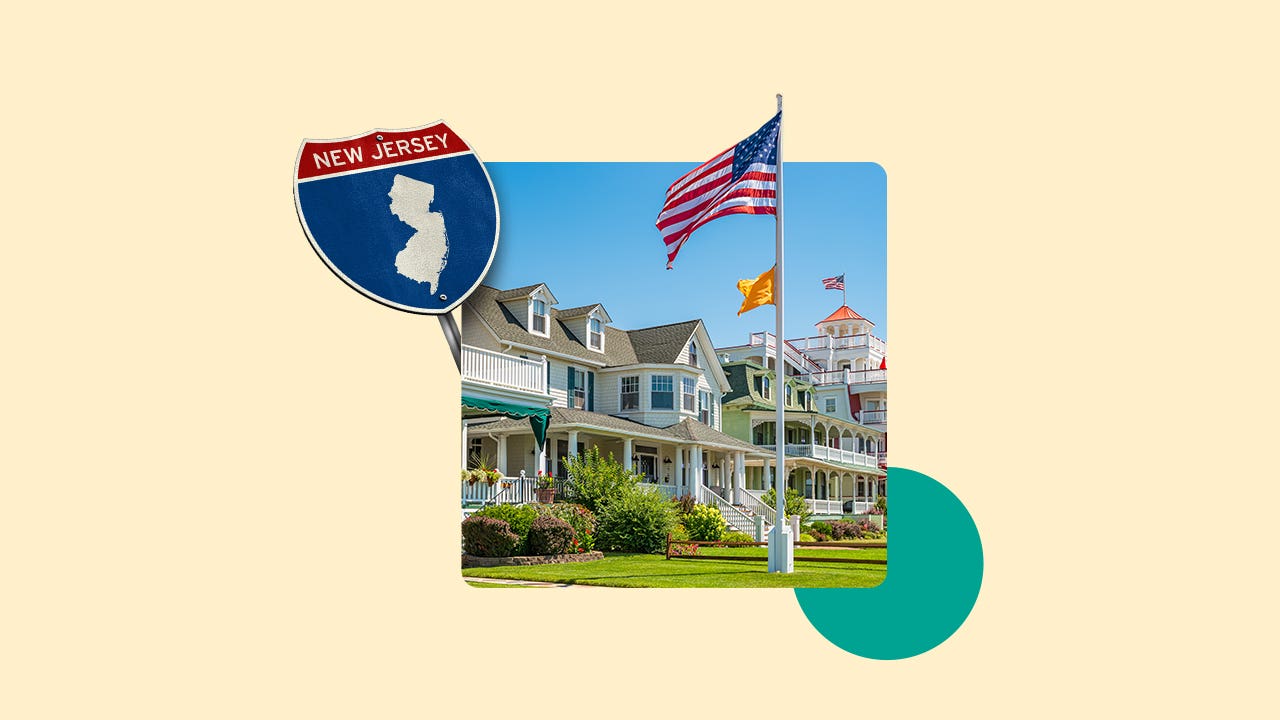New Jersey housing market: Everything you need to know

New Jersey has a lot going for it, even beyond its status as the home state of Bruce Springsteen, Jon Bon Jovi, Frank Sinatra and Whitney Houston. It’s the most densely populated state in the nation, and one of the most diverse, with Philadelphia to the south, New York City to the north and plenty of Atlantic beaches in-between. The housing market, however, is a bit of a mixed bag. Homes here tend to be expensive, and according to data from New Jersey Realtors, prices are on the rise — but the volume of overall sales is down significantly. If you’re thinking of buying or selling a home in the Garden State, here’s what to know about the New Jersey housing market.
New Jersey housing market overview
Home prices can and do vary widely depending on location, even within a single state. In New Jersey, the closer you are to New York City, the more you will likely pay for housing. For example, in southwestern Salem County, the median sale price of a single family home in May 2023 was $220,000. In Hudson County, just across the Hudson River from New York City, the median was more than double that at $495,000.
In addition, homes in the famous Jersey Shore beach towns run far more expensive than those inland. The median home price in Ocean City was $1.04 million in May, per Redfin data, and in Stone Harbor, it was more than $1.5 million.
New Jersey housing trends and stats
- According to New Jersey Realtors data, the statewide median sale price for a single-family home in May was an even $500,000.
- That’s a 2.0 percent increase since May of last year and considerably higher than the nationwide median of $396,100.
- The state’s sale-to-list ratio in May was 102.8 percent, meaning buyers typically nearly 3 percent over list price.
- Homes spent an average of 36 days on the market, a week longer than they took to sell at this time last year.
- The state’s average closing costs total 1.7 percent of the home’s purchase price, according to research from ClosingCorp. On a median-priced $500,000 sale, that’s an additional $8,500.
Should you buy or sell in the New Jersey housing market?
There are pros and cons on both sides of the equation, so the best way to answer this question is to look at the factors that matter most to you.
If you’re a home seller
As a New Jersey seller, you have an advantage based on simple supply and demand. There was only a 2.5-month supply of inventory available for sale in the state as of May, which is far short of the 5 to 6 months needed for a balanced market. And homes are still selling for over asking price, another point in your favor.
On the other hand, the increase in days on market means you will have to wait longer to make a deal, and is likely a signal that high interest rates are keeping potential buyers on the sidelines for now. The volume of closed sales in the state also declined by more than 23 percent from May 2022 to May 2023. Before you list, make sure you have a good understanding of what your home is worth so you can price it accordingly.
If you’re a homebuyer
High prices and high mortgage rates make it a tough time to be a New Jersey homebuyer. (The same is true in most every state, not just here.) But the increase in the state’s days-on-market metric provides you a small but meaningful advantage — you don’t have to feel rushed on your house-hunt. Plus, the longer a home sits on the market, the more inclined the seller might be to reduce the price. In fact, according to Redfin, 12.2 percent of New Jersey homes sold in May dropped their prices before closing the deal.
One thing you can do to boost that advantage is to get preapproved for a mortgage. This gives you a firm idea of just how much you can afford, and also lets sellers know that you are a qualified buyer. Another smart move is to seek out homebuyer assistance programs that can help you cover some of your closing costs and down payment. New Jersey has statewide programs available, and there are national and local programs available too, especially for first-time homebuyers.
New Jersey housing market predictions
What does the future hold for the housing market in New Jersey? Real estate predictions can be tricky in this constantly changing market, where inflation and recession fears have many buyers and sellers worrying about a housing market crash. But most experts and real estate analysts don’t see that as a likely scenario anytime soon. Instead, many forecast a slowdown but not a crash. And with the state’s increasing population — it is expected to hit nearly 10 million residents by 2030 — its housing market should remain robust.
Find a New Jersey real estate agent
Buying or selling real estate is a complicated process, especially in a heavily populated area with a shortage of housing inventory. But you don’t need to go it alone. An experienced real estate agent can be your guide, helping sellers close a deal for top dollar and buyers find what they want at the best possible price. Agents can help you avoid mistakes and address any issues or hiccups you run into to keep things on track. Ask friends, relatives and others you know and trust for suggestions or recommendations, do some research online and interview several candidates to find someone you feel comfortable with.
FAQs
-
No — in fact, they’re rising. Data from New Jersey Realtors shows that the median sale price in the state rose by 2 percent from May 2022 to May 2023.
-
While there are many affordable areas in the state, New Jersey homes tend to become more expensive the closer they are to New York City, Philadelphia or the beaches. Some beach towns in particular are very pricey.
Why we ask for feedback Your feedback helps us improve our content and services. It takes less than a minute to complete.
Your responses are anonymous and will only be used for improving our website.
You may also like

Do you need your own claims adjuster?

What documents do you need to finance a car?




